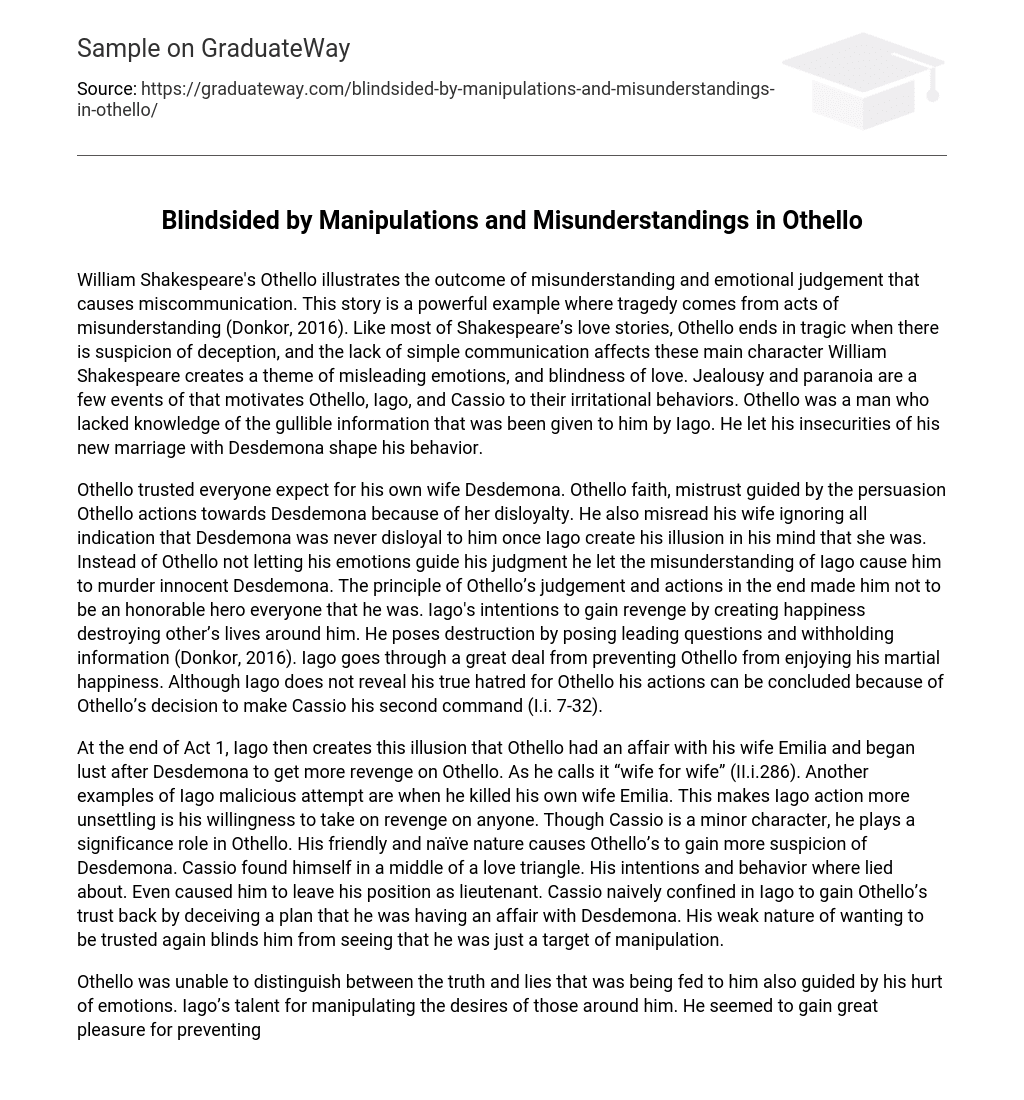William Shakespeare’s Othello illustrates the outcome of misunderstanding and emotional judgement that causes miscommunication. This story is a powerful example where tragedy comes from acts of misunderstanding (Donkor, 2016). Like most of Shakespeare’s love stories, Othello ends in tragic when there is suspicion of deception, and the lack of simple communication affects these main character William Shakespeare creates a theme of misleading emotions, and blindness of love. Jealousy and paranoia are a few events of that motivates Othello, Iago, and Cassio to their irritational behaviors. Othello was a man who lacked knowledge of the gullible information that was been given to him by Iago. He let his insecurities of his new marriage with Desdemona shape his behavior.
Othello trusted everyone expect for his own wife Desdemona. Othello faith, mistrust guided by the persuasion Othello actions towards Desdemona because of her disloyalty. He also misread his wife ignoring all indication that Desdemona was never disloyal to him once Iago create his illusion in his mind that she was. Instead of Othello not letting his emotions guide his judgment he let the misunderstanding of Iago cause him to murder innocent Desdemona. The principle of Othello’s judgement and actions in the end made him not to be an honorable hero everyone that he was. Iago’s intentions to gain revenge by creating happiness destroying other’s lives around him. He poses destruction by posing leading questions and withholding information (Donkor, 2016). Iago goes through a great deal from preventing Othello from enjoying his martial happiness. Although Iago does not reveal his true hatred for Othello his actions can be concluded because of Othello’s decision to make Cassio his second command (I.i. 7-32).
At the end of Act 1, Iago then creates this illusion that Othello had an affair with his wife Emilia and began lust after Desdemona to get more revenge on Othello. As he calls it “wife for wife” (II.i.286). Another examples of Iago malicious attempt are when he killed his own wife Emilia. This makes Iago action more unsettling is his willingness to take on revenge on anyone. Though Cassio is a minor character, he plays a significance role in Othello. His friendly and naïve nature causes Othello’s to gain more suspicion of Desdemona. Cassio found himself in a middle of a love triangle. His intentions and behavior where lied about. Even caused him to leave his position as lieutenant. Cassio naively confined in Iago to gain Othello’s trust back by deceiving a plan that he was having an affair with Desdemona. His weak nature of wanting to be trusted again blinds him from seeing that he was just a target of manipulation.
Othello was unable to distinguish between the truth and lies that was being fed to him also guided by his hurt of emotions. Iago’s talent for manipulating the desires of those around him. He seemed to gain great pleasure for preventing others happiness. Whereas Cassio was just a fool wanting to gain back the trust of his boss. Each of these men clouded judgments lead them to destruction in the end. Blinded by misunderstanding and lack of communication caused tragedy in all their lives.





